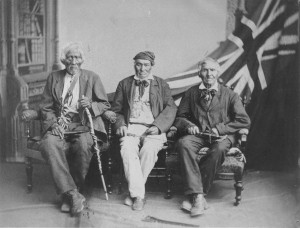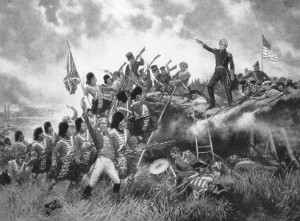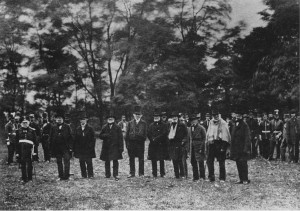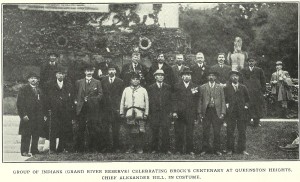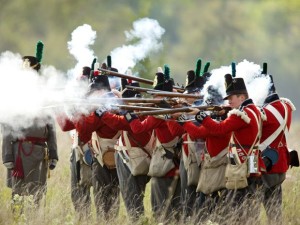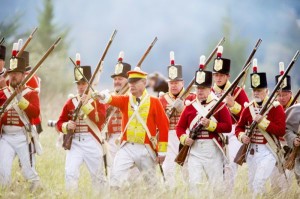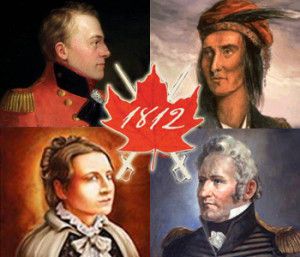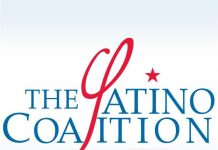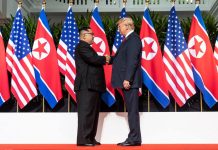The War of 1812 was fought a 32-month military conflict between the United States and Great Britain and lasted from 1812 to 1815.
Resulting from American anger over trade issues, impressment of sailors, and British support of Indian attacks on the frontier, the conflict saw the US Army attempt to invade Canada while British forces attacked south. Over the course of the war, neither side gained a decisive advantage and the war resulted in a return to status quo ante bellum.
Despite this lack of conclusiveness on the battlefield, several late American victories led to a newfound sense of national identity and a feeling of victory.
The United States declared war in 1812 for several reasons, including trade restrictions brought about by Britain’s continuing war with France, the impressment of American merchant sailors into the Royal Navy, British support of American Indian tribes against American expansion, outrage over insults to national honor after humiliations on the high seas, and possible American interest in annexing Canada.
[divider]
Causes of the War of 1812
The real origins of the War of 1812 were in the conflict that raged in Europe for two decades after Napoleon Bonaparte.
These NAPOLEONIC WARS caused Great Britain to adopt measures that greatly aggravated the United States.
On 21 Nov 1806 Napoleon ordered a blockade (the Berlin Decree) of shipping aimed at crippling British trade. He ordered all European ports under his control closed to British ships. He further decreed that neutral and French ships would be seized if they visited a British port before entering a continental port (the so-called Continental System).
Great Britain responded to Napoleon with a series of orders-in-council requiring all neutral ships to obtain a licence before they could sail to Europe. Since the victory of Lord Nelson at Trafalgar (21 Oct 1805), Great Britain had the sea power to enforce its blockade. For some 20 years the Americans grappled with the problems of being a neutral nation in the great European war.
Tensions mounted as the British began stopping American ships from trading in Europe. Even more vexing was the British practice of searching American vessels for “contraband” (defined by the British as goods that they declared illegal) and of searching for deserters who had fled the harsh conditions of the Royal Navy.
Many of these deserters had taken jobs on American ships and American certificates of citizenship made no impression on the British. The final straw in this perceived British arrogance was the actions of British captains to impress (seize) native-born Americans and put them into service on British ships.
These maritime tensions exploded, literally, in 1807 off the shore of Chesapeake Bay. A British naval squadron was watching the area for French ships when several British sailors managed to desert and promptly to enlist in the American navy.
The captain of the American 38-gun frigate Chesapeake knew that he had deserters on board when HMS Leopard tried to board and search his ship. When the Chesapeake refused to heave to, the 50-gun Leopard opened fire, killing three and injuring 18 of the crew. The British boarded and seized four men. This “Chesapeake Affair” outraged even temperate Americans. The actions of the British ship HMS Guerriere on 1 May 1811 in impressing an American sailor from a coastal vessel caused further tension.
This dispute over maritime rights might have been resolved with diplomacy (in fact the new government of Lord Liverpool rescinded the orders-in-council a few days before the US declared war, though the news hadn’t yet reached America) but there were other interests at play among the Americans. Not all Americans wanted war with Great Britain, notably the merchants of New England and New York.
President James Madison was intrigued by the analysis of Major General Dearborn that in the event of war, Canada would be easy pickings – that in fact an invasion would be welcomed by the Canadians. It was a war that had been loudly demanded by the “War Hawks,” a group of Congressmen from the south and west, filled with Anglophobia and nationalism.
These Republicans encouraged war as a means to retaliate against Britain for the economic distress caused by the blockade, but also for what they perceived as British machinations in encouraging the resistance of the First Nations to American expansion into the West.
On 1 June 1812, President Madison sent Congress a request for an immediate declaration of war. On 4 June Congress voted 79-49 in favour. On 17 June the Senate followed with approval 19 votes to 13, and on 18 June Madison signed a declaration of war against Great Britain.
[divider]
Links to Other Sites
[divider]
[divider]
[divider]
[divider]
[divider]
[divider]
[divider]
[divider]
[divider]
[divider]
[divider]
[divider]







